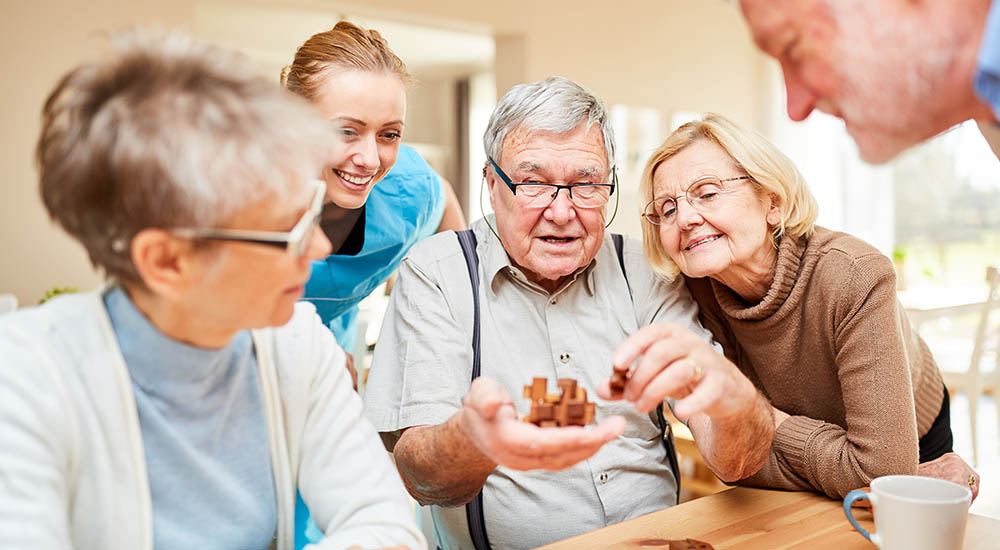




Home safety is important for everyone, but especially for people who have Alzheimer’s disease or other types of dementia. Over time, they may become less able to manage around the house. For instance, they may forget to turn off the stove, slip in the shower or even wander outside. Loose rugs, dim lighting and clutter can lead to falls and they may not be able to call for help. It is usually more effective to change the person’s surroundings by removing dangerous items than to try to change their behaviors.
To prevent stressful and dangerous situations, consider these home safety tips for caregivers.
Living Room & Hallway
|
Bathroom
|
Kitchen
|
Bedroom
|
Other Areas
|
Caregivers can do many things to make the home a safer place for someone with dementia. Simple precautions can help people with dementia maintain their independence and ease the stress of caregiving. Whenever possible, caregivers should involve the person with dementia in identifying problems and deciding on changes to their home. If you need help making changes to your home, enlist friends, a home safety professional or a community organization. Trying to find the right equipment can be a challenge so the HomeCare Hospital Beds team of experts is ready to help! For more information, call us today at 877-414-0002 or email us at info@homecarehospitalbeds.com.
**The information on this site is not intended or implied to be a substitute for professional medical advice. If you are having a severe and sudden change in physical or mental health, please call 911, contact a local emergency facility or consult with your doctor. Always seek the advice of your physician or other qualified healthcare provider, and never disregard the advice given because of information you have received from our website.**




| Cookie | Duration | Description |
|---|---|---|
| cookielawinfo-checkbox-analytics | 11 months | This cookie is set by GDPR Cookie Consent plugin. The cookie is used to store the user consent for the cookies in the category "Analytics". |
| cookielawinfo-checkbox-functional | 11 months | The cookie is set by GDPR cookie consent to record the user consent for the cookies in the category "Functional". |
| cookielawinfo-checkbox-necessary | 11 months | This cookie is set by GDPR Cookie Consent plugin. The cookies is used to store the user consent for the cookies in the category "Necessary". |
| cookielawinfo-checkbox-others | 11 months | This cookie is set by GDPR Cookie Consent plugin. The cookie is used to store the user consent for the cookies in the category "Other. |
| cookielawinfo-checkbox-performance | 11 months | This cookie is set by GDPR Cookie Consent plugin. The cookie is used to store the user consent for the cookies in the category "Performance". |
| viewed_cookie_policy | 11 months | The cookie is set by the GDPR Cookie Consent plugin and is used to store whether or not user has consented to the use of cookies. It does not store any personal data. |